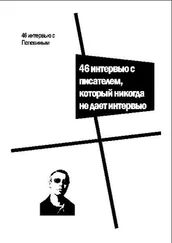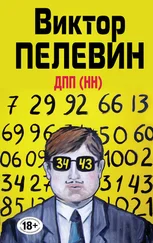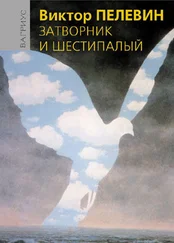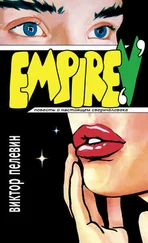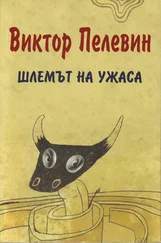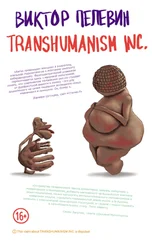Виктор Пелевин - Buddha's Little Finger
Здесь есть возможность читать онлайн «Виктор Пелевин - Buddha's Little Finger» весь текст электронной книги совершенно бесплатно (целиком полную версию без сокращений). В некоторых случаях можно слушать аудио, скачать через торрент в формате fb2 и присутствует краткое содержание. Жанр: Современная проза, на английском языке. Описание произведения, (предисловие) а так же отзывы посетителей доступны на портале библиотеки ЛибКат.
- Название:Buddha's Little Finger
- Автор:
- Жанр:
- Год:неизвестен
- ISBN:нет данных
- Рейтинг книги:5 / 5. Голосов: 1
-
Избранное:Добавить в избранное
- Отзывы:
-
Ваша оценка:
- 100
- 1
- 2
- 3
- 4
- 5
Buddha's Little Finger: краткое содержание, описание и аннотация
Предлагаем к чтению аннотацию, описание, краткое содержание или предисловие (зависит от того, что написал сам автор книги «Buddha's Little Finger»). Если вы не нашли необходимую информацию о книге — напишите в комментариях, мы постараемся отыскать её.
Buddha's Little Finger — читать онлайн бесплатно полную книгу (весь текст) целиком
Ниже представлен текст книги, разбитый по страницам. Система сохранения места последней прочитанной страницы, позволяет с удобством читать онлайн бесплатно книгу «Buddha's Little Finger», без необходимости каждый раз заново искать на чём Вы остановились. Поставьте закладку, и сможете в любой момент перейти на страницу, на которой закончили чтение.
Интервал:
Закладка:
I actually ran into her in the direct sense of the word; for a brief second my arms, instinctively thrown out ahead of me, closed around her in a tight embrace, unpremeditated and clumsy, but nonetheless disturbing for that. The next instant, as through thrown off by an electric shock, I leapt backwards, stumbled over the last step of the stairway and fell flat on my back - it must all have appeared quite monstrously absurd. But Anna did not laugh - quite the opposite, her face expressed fright and concern.
‘Did you hit your head?’ she asked, leaning down over me solicitously and holding out her hand.
‘No,’ I said, taking her hand in mine and getting to my feet.
Even after I had risen she did not withdraw her hand; for a second there was an awkward pause and then I surprised even myself by saying:
‘Surely you must understand that this is not the way I am in myself, that it is you, Anna, who make me the most ridiculous being in the world.’
‘I? But why?’
‘As if you could not see for yourself… You have been sent by God or the devil, I do not know which, to punish me. Before I met you, I had no idea of how hideous I was not in myself, but in comparison with that higher, unattainable beauty which you symbolize for me. You are like a mirror in which I have suddenly glimpsed the great, unbridgeable gulf which separates me from everything that I love in this world, from everything that is dear to me, that holds any meaning or significance for me. And only you, Anna - hear me out, please - only you can bring back to my life the light and the meaning which disappeared after that first time I saw you in the train! You alone are capable of saving me.’ I uttered all of this in a single breath.
Of course, I lied - no particular light and meaning had disappeared from my life with Anna’s appearance, because there had not been any before - but at the moment when I pronounced these words, every single one of them seemed to me to be the most sacred truth. As Anna listened in silence, an expression of mingled mistrust and incomprehension gradually stole across her face. Apparently this was the very last thing she had expected to hear from me.
‘But how can I save you?’ she asked, knitting her brows in a frown. ‘Believe me, I would be glad to do so, but what exactly is required of me?’
Her hand remained in mine, and I suddenly sensed a wave of insane hope surge in my breast.
‘Tell me, Anna,’ I said quickly, ‘you love to go riding in a carriage, do you not? I have won the trotters from Kotovsky. Here in the manor-house would be awkward. This evening, as soon as it is dark, let us take a ride out into the countryside!’
‘What?’ she asked. ‘But what for?’
‘What do you mean, «what for»? I assumed…’
Her expression changed instantly to one of weariness and boredom.
‘God, what banal vulgarity!’ she said, withdrawing her hand. ‘It would be better if you simply smelled of onions, like the last time.’
She walked past me, ran quickly up the stairs and entered Chapaev’s study without knocking. I went on standing there for some time; as soon as I had recovered control of the muscles of my face, I went out into the yard. After a long search I managed to find Furmanov in the headquarters hut, where he seemed to have settled in and made himself thoroughly at home. Standing on the table, beside an immense ink stain, was a samovar with a vaudeville boot stuck upside down over its chimney; evidently it served them as a kind of bellows for drawing the fire. Pieces of a dismembered herring were lying on rags beside the samovar. Having told Furmanov that I would recite revolutionary verse at the concert that evening, I left him to carry on drinking his tea - I was sure that there was vodka hidden under the table - in the company of two members of the weavers’ regiment. I went out through the gates of the yard and walked slowly in the direction of the forest.
It was strange, but I scarcely gave a thought to the declaration I had just made to Anna. I did not even feel particularly angry with myself. It did occur to me, it is true, that on every occasion she teased me with the possibility of a reconciliation, and then, as soon as I took the bait, made me appear quite monstrously absurd - but even this thought evaporated without the slightest effort on my part.
I walked uphill along the road, looking around me as I went. Soon the road surface came to an end; I walked a little further, then turned off the road, walked down the sloping grassy margin and sat down, leaning my back against a tree.
Holding a sheet of paper on my knees, I rapidly jotted down a text which was good enough for the weavers. As Chapaev had requested, it was in the spirit of the ‘Musical Snuffbox’, a sonnet with an affected rhyme scheme and a jagged rhythm that might have been ripped and torn with sabres. When it was finished, I realized that I had not included any revolutionary imagery and rewrote the final lines.
I was on the point of going back to the manor when I suddenly sensed that the insignificant effort I had made in writing these verses for the weavers had aroused my long-dormant creative powers; an invisible wing unfurled above my head, and everything else lost all importance. I remembered the death of the Emperor - this black news had been brought by Furmanov - and an almost pure anapaest (hreaded with interlinking rhymes flowed out as if of its own accord on to the paper. The form now seemed to me like some totally improbable echo of the past.
The poem began with a description of two sailors who seemed born from a condensation of the wind and the twilight that had settled over the world. Cleaving the foliage with the dark leather of their jackets, they were leading the hound Emperor. The Emperor was tired and resigned to his fate, but his eyes noticed many things that the sailors did not see; faces in the bushes, orderlies spitting in his beard, and the astounding beauty of this final evening. In their coarse fashion, the sailors attempted to lift the Emperor’s spirits, but he remained indifferent to their words, and even to the clatter of their breech-locks. Clambering up on to a tree stump, he shouted to them:
In the midst of this stillness and sorrow,
In these days of distrust
Maybe all can be changed - who can tell?
Who can tell what will come
To replace our visions tomorrow
And to judge our past?
He even spoke in English, a fact, however, that did not surprise me in the slightest. Indeed, how could he, before his death (or perhaps before something else - I did not quite understand that point myself) have expressed himself in the Russian language defiled by the decrees of the Council of People’s Commissars? I found the orderlies far more surprising - I simply could not make out what they meant. However, I had never understood my own poetry particularly well, and had long suspected that authorship is a dubious concept, and all that is required from a person who takes a pen in hand is to line up the various keyholes scattered about his soul so that a ray of sunlight can shine through on to the paper set out in front of him.
When I returned to the manor-house the performance was already in full swing. In the corner of the yard stood the platform of an improvised stage, hastily cobbled together by the weavers from the planks of a dismantled fence. The men were sitting on benches and chairs which they had pilfered from wherever they could find them, attentively following the action. As I approached, a horse was being forcibly dragged away by its reins, to the loud laughter and ribald comments of the audience - the poor animal obviously possessed some talent which it had been forced to demonstrate. Then a thin man with a sabre hanging on his belt and the face of a village atheist appeared at the edge of the stage; I realized that he must be performing the function of master of ceremonies. He waited for the hubbub of voices to die away and then said solemnly:
Читать дальшеИнтервал:
Закладка:
Похожие книги на «Buddha's Little Finger»
Представляем Вашему вниманию похожие книги на «Buddha's Little Finger» списком для выбора. Мы отобрали схожую по названию и смыслу литературу в надежде предоставить читателям больше вариантов отыскать новые, интересные, ещё непрочитанные произведения.
Обсуждение, отзывы о книге «Buddha's Little Finger» и просто собственные мнения читателей. Оставьте ваши комментарии, напишите, что Вы думаете о произведении, его смысле или главных героях. Укажите что конкретно понравилось, а что нет, и почему Вы так считаете.

